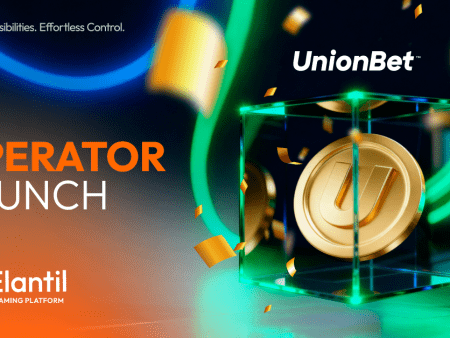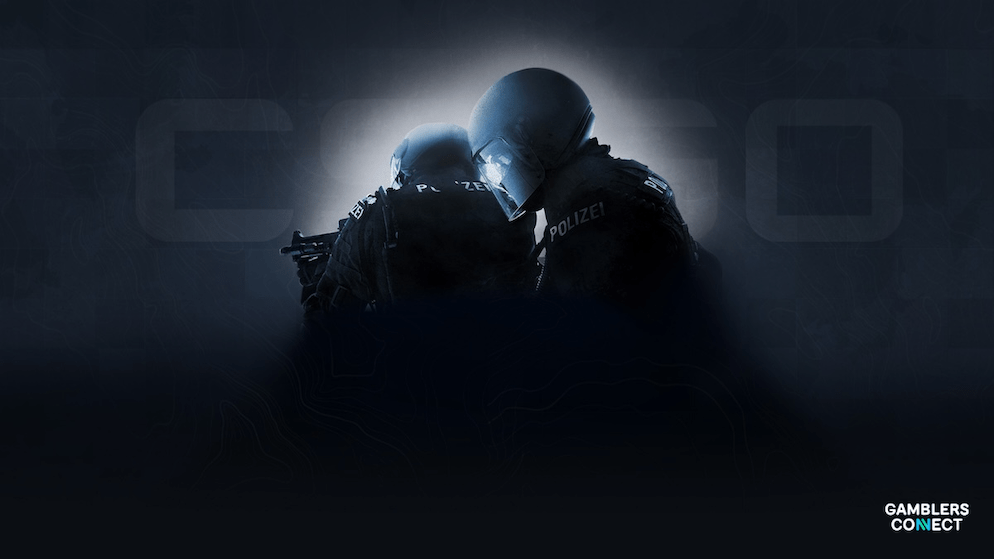
If you’ve ever heard of csgo clicker, you’re peering into one of the more controversial corners of the gaming world. This guide will walk you through everything you need to know about csgo clicker style mechanics, gambling with skins and items in Counter‑Strike: Global Offensive (CS:GO), how it compares to other forms of online gambling, its risks, and what the future might hold.
Along the way you’ll also encounter many relevant terms that dominate the scene such as cs go skin, cs go tile, most expensive skin on cs go, csgo knives, and csgo clicker itself, among many others.
What Is CSGO clicker and How It Works?
“csgo clicker” describes a category of web-based interfaces tied to CS:GO skins where clicks, pulls, or simulated case openings trigger virtual outcomes. In its core form, a user clicks, a timer or animation plays, and an item drop or reward is shown. It’s a derivative of the broader skin gambling phenomenon but with a focus on “click to try your luck” mechanics rather than pure match-betting or casino-style games.
When you engage in a csgo clicker interface you might deposit a CS GO skin (or several), then you click to open a case, or spin a wheel, or engage in a “clicker battle” against another user, and the reward could be a high-value skin such as the “most expensive knife cs go” or “most valuable cs go knife”. The appeal is immediate: click, hope for big drop, maybe screenshot a “karambit csgo” or “csgo butterfly knife”. But it’s also laden with risk.
Because csgo clicker websites often link to the broader ecosystem of cs go skin values and trading, they blur lines between entertainment, gambling and speculation. They draw in users because they combine the video-game world of CS:GO, the thrill of chance, and the monetary value tied to rare items.
Let’s define some of the commonly used terms that you’ll encounter in this space:
| Term | Definition |
| cs go skin | A cosmetic finish for a weapon or item in CS:GO (or its successor). These skins may have different rarities, patterns, float values, and thus different market values. According to Wikipedia, skins became tradable after the Arms Deal update in 2013. |
| most expensive skin on cs go / most valuable cs go knife | Certain skins or knives (e.g., factory new rare patterns) have sold or been offered for extremely high sums. For example, a “factory new, case-hardened Karambit, pattern 387 (blue gem)” reportedly attracted offers around $1.5 million. |
| csgo knives / karambit csgo / csgo butterfly knife / kukri knife csgo | These are among the rarest and most valuable items in the CS:GO ecosystem due to their rarity, desirability, and trading value. |
| cs go tile | This term may refer to clickable “tiles” in mini-games on gambling sites (for example a “mine” game where you click safe tiles). |
| csgo crosshair / crosshair for cs go / csgo crosshairs / csgo crosshair codes | Although slightly tangential to gambling, crosshair customization is part of the CS:GO/CS2player experience; some sites might use them in branding or as part of “clicker” interfaces. |
| csgo luck | A phrase often used in skin gambling communities to describe the degree of randomness or chance in opening a case, winning a duel, or using a clicker-type mechanic. |
So in summary, when you see “csgo clicker”, think of a site or interface where you click or interact to try and win skinsor items, leveraging the broader skin economy of CS:GO.
The Skin Economy & Why It Matters
To understand csgo clicker and skin gambling you must first appreciate the underlying economy of CS:GO items.
Origin of the CS:GO Skin Economy
With the release of CS:GO and its Arms Deal update (Aug 2013) the game introduced cosmetic weapon finishes(“skins”) that players could obtain via virtual cases, keys, or marketplace purchases. These skins could be traded, sold (via the Steam marketplace), or used within third-party trading platforms. This created a real-money equivalent value for some items, even though Valve prohibited direct cash‑outs.
Value & Rarity
Skins vary by rarity, condition (“Factory New”, “Minimal Wear”, etc.), pattern, float value, and sometimes provenance. A rare knife or glove might fetch thousands or even hundreds of thousands of dollars. For example, some reports place the market value of elite skins and gloves at extremely high levels.
This value lends itself to being used as collateral or currency in gambling systems. When you deposit skins into a csgo clicker interface, you’re effectively wagering something of real value.
How Skin Trading Supports Gambling
Because skins can be moved between inventories and third-party sites, they become the medium of exchange for skin-betting. Skins are used in place of fiat currency in many gambling contexts: deposit Skin A, play game, win Skin B. As summarized, skins gambling involves “the use of virtual goods … as virtual currency to bet on the outcome of professional matches or on other games of chance.”
Thus, csgo clicker mechanics often integrate this skin economy: you deposit one or more skins, click or gamble, and hope you walk away with a more valuable item like the “most expensive csgo skin”.
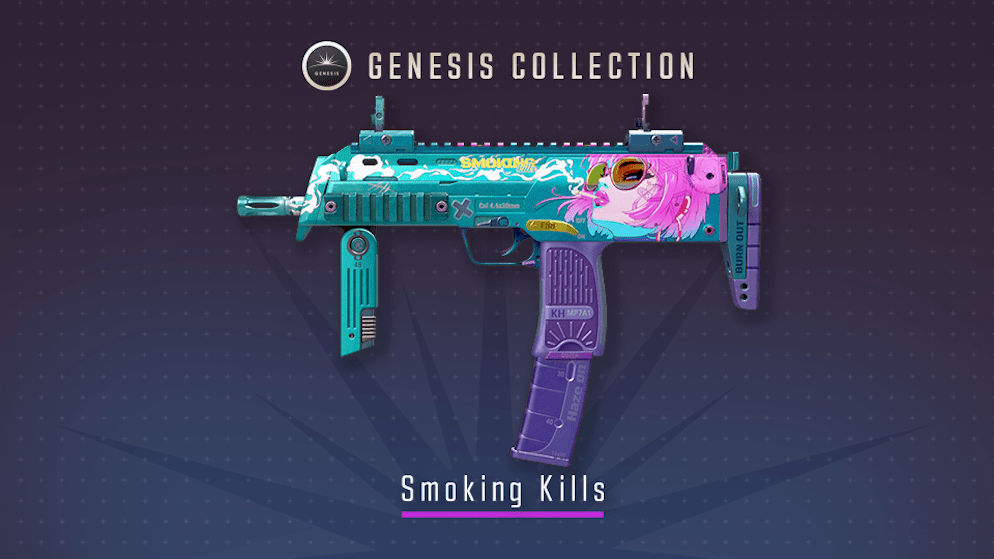
How CS:GO Skin Gambling & Clicker-Style Sites Operate
There are a variety of gambling styles in the CS:GO skin world; csgo clicker is one variant emphasising quick interaction. Here’s how they commonly work:
a) Account setup & deposit
- You link your Steam account (or inventory) to the gambling site.
- You deposit skins from your inventory (or sometimes items from other games). For example: “You can deposit your CS:GO skins and items …”
- Upon deposit, the skins are valued (often converting them to site tokens or credits).
b) The game / clicker mechanics
- You select a game mode (case opening, coin flip, crash, clicker tile game, roulette etc).
- For a csgo clicker style game you click a tile, open a case, or trigger an event that uses your skin(s) as the stake.
- The reward may be another skin (possibly more valuable) or you may lose your deposit.
c) Withdrawal / trade out
- If you win you get skins back (or tokens convertible to skins) via trade offer or site balance.
- Many sites support case openings likewise: “Players can deposit and withdraw skins …”
- Withdrawals often rely on Steam trade offers or internal marketplace systems.
d) Types of games commonly found
According to multiple sources, popular skin-gambling modes include: coin flip, jackpot/pot, crash, case opening, roulette, slot-style, tile or mine games.
A csgo clicker variant might appear as a simplified interactive interface: click to open, click tiles, etc.
e) Why “clicker” matters
The clicker aspect is psychological and design‑driven: it mimics the satisfaction of clicking, reacting, seeing instant visual feedback, trying your luck. It blurs game mechanics with gambling mechanics, making inventory items and skinsa “fun” click-based interaction rather than just old-school betting.
Example flow of csgo clicker
- You log in, see a “Click here to open case” button.
- You deposit a mid-value skin (say a rare rifle skin).
- You click, animation plays, result reveals a higher‑value knife skin (say a “karambit csgo”) or you lose the deposit.
- You can withdraw the new skin, or it remains on site credit if you lose.
The “click” behaviour makes this appealing to casual users but also amplifies risks because of rapid play, quick wins/losses, and often minimal friction.
Legal, Regulatory & Ethical Considerations
Because csgo clicker and skin gambling straddle game mechanics and monetary wagering, the legal and ethical landscape is complex.
Legal status & regulation
- Skin gambling involves virtual items used as a proxy for cash; many jurisdictions treat it differently or not at all. Wikipedia notes: “American case law … has determined that the use of virtual goods for betting on the outcome of matches is legal and not covered under gambling laws.”
- The phenomenon has drawn lawsuits, regulatory scrutiny: e.g., the use of skins in betting on esports matches by minors.
- Some sites that accept skins and offer gamble‑style mechanics may fall outside standard gambling licences, increasing risk for users.
- For example, in 2024 a report highlighted how “skins gambling” ads proliferated on major ad platforms, exposing minors and raising concerns.
- The grey area especially applies when items can be traded for money (via third-party markets) or when sites operate from offshore jurisdictions.
Ethical concerns
- Under-age access: Because many gamers are minors, using skins as betting currency poses risks of early gambling exposure. For example, the Guardian article quotes concerns that “skins gambling is rotting young people’s brains”.
- Addiction risk: The speed and dopamine hits of click-based interfaces (such as csgo clicker games) can encourage problem gambling behaviours more than slower traditional formats.
- Lack of transparency & fairness: Some sites may manipulate odds, lack licensing, or have weak enforcement of age verification.
- Match-fixing & integrity issues: When skins are used to bet on esports matches (rather than clicker games), players/pro-players may face undue pressure. The match-fixing scandal around CS:GO highlights this.
- Platform responsibility: Platforms like Steam/Valve have been criticised for enabling item markets that feed into gambling ecosystems. Valve’s own policy changes reflect that.
Platform actions
- Many third-party skin gambling websites have faced cease-and-desist letters from Valve and regulatory action.
- Companies like Twitch and YouTube have taken steps to block adverts for skin gambling (though enforcement is uneven). Barron’s
- Some jurisdictions are actively investigating skin-betting platforms; some local laws now treat loot boxes/skins gambling more strictly.
In short: engaging in csgo clicker or skin gambling is not without legal or ethical risk. Users must also consider where they reside, what laws apply, and whether the site is licensed and trustworthy.
CS:GO Gambling Compared with Other Online Gambling Formats
It’s helpful to compare csgo clicker/skin gambling with other forms of gambling: traditional online casino gambling, crypto gambling, and prediction-market gambling. The following table offers a 1v1 comparison, and then we’ll discuss how they differ.
| Feature | csgo clicker / skin gambling | Regular online gambling(casino/slots) | Crypto gambling / prediction markets |
| Stake medium | Skins/items, sometimes tokens | Cash (fiat currency) | Crypto (BTC, ETH, etc) or tokens |
| Underlying value | Marketplace value of skins | Currency value is explicit | Crypto value fluctuates |
| Game interface | Case openings, click tiles, coin flips, clicker mechanics | Slots, table games, live casino | Betting markets, prediction outcomes, crypto-games |
| Regulation | Often grey zone, fewer licences | Highly regulated in many jurisdictions | Varies greatly by crypto regulation |
| Speed / interaction | Fast click-based, often rapid turnover | Varies; slots fast, some table games slower | Can be fast, especially crypto games |
| Value transparency | Skin value is relative and can fluctuate; withdrawals may be complex | Cash value direct | Crypto value volatile, can be converted |
| Risk of minors / exposure | High: game link + appeal to younger players | Regulated with age checks in many markets | Varies—often weaker regulation |
| Withdrawal complexity | Trade offers, items to skins, sometimes indirect cash conversion | Direct cash withdrawal (FIAT) | Crypto withdrawal; wallet control needed |
| Market stigma & oversight | More controversial, lots of negative press | Widely accepted and regulated | Still emerging, high volatility & regulatory uncertainty |
Key differences:
- csgo clicker style sites use skins/items rather than pure currency, which adds complexity in value, withdrawal and regulation.
- Traditional online gambling involves cash stakes and works within more mature regulatory frameworks.
- Crypto and prediction markets bring their own risks: volatility, regulatory ambiguity, and technical complexity.
- The interface and behaviour in csgo clicker games (quick clicks, case openings) appeal like video-games, hence raise additional concerns about exposure to younger audiences.
Thus, while all forms involve risk and chance, csgo clicker/skin gambling stands out for its item-based stakes, rapid interaction, and accessibility to game-centric audiences.
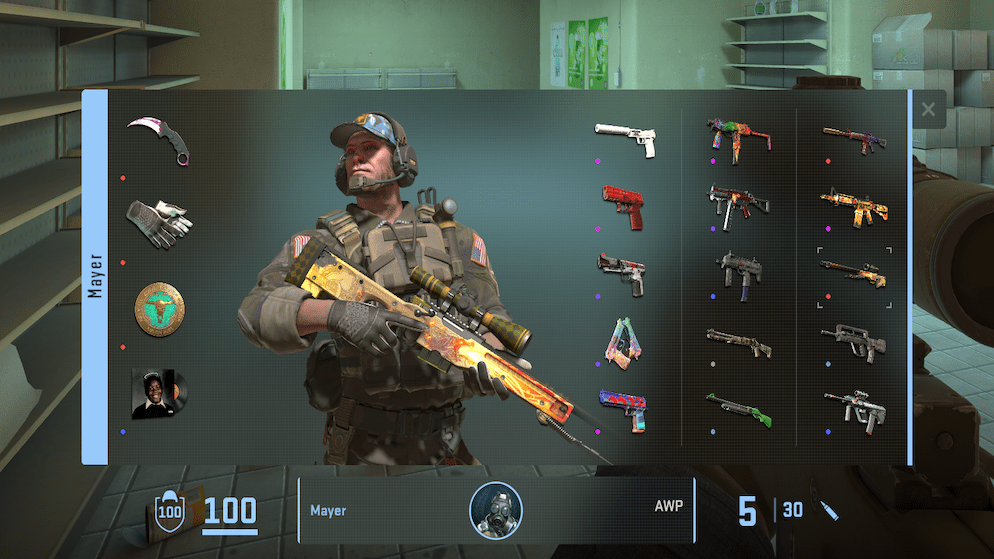
Popular Mechanics & Terms: What You’ll Encounter
If you dive into the world of csgo clicker or skin gambling, you’ll bump into many specific terms and mechanics. Here’s a breakdown of the most important.
Case opening / weapon case mechanics
- Many websites mimic the in-game mechanism of “cases”: e.g., you open a “cs:go weapon case 3” or other containers and hope for rare drops.
- This is essentially a mini-gamble: you pay (via skins or money) to open the case, and you get a skin of random value (might be less, might be far more).
- Because some skins are extremely valuable (e.g., “most expensive csgo skin”, “most expensive knife cs go”), the potential upside is dramatic.
Duel / Coinflip / Jackpot / Crash / Tile Games
- Coinflip: Two players wager skins, winner takes all. Seen on many sites.
- Crash / multiplier games: You stake skins, the multiplier climbs, you click out before it “crashes”.
- Jackpot / pot: Many players add skins into a pot; one winner gets the full pot.
- Tile / mines / clicker games: These are more like panels or tiles you click until you either hit a mine or collect reward. This is close to the clicker format. For example: “Click safe tiles to increase your winnings. Hit a mine, and you lose everything.”
- Roulette / slots: Skin casinos often provide roulette or slot interfaces where skins are the stakes.
Key item categories
- csgo knives / karambit csgo / csgo butterfly knife: Collectible knife skins often among the highest-value items.
- cs go skin for rifles, gloves, pistols: these all vary widely in value.
- cs go gloves: Another high-value accessory in the skin market.
- cs go case prices: Case opening often depends on buying or depositing skins or keys; case value influences risk and reward.
Other terms
- csgo reddit / r/csgo / r/counterstrike: These are communities on Reddit where many users share drops, trades, stories of wins and losses. Example: > “Always have been into (mostly cheap) skins … in 2022 I started opening some cases … I got this MW Cobalt Skulls …”
- csgo-aktym-syacf-ukom7-tgkdm-mojvm: This appears to be a random string used as example or placeholder in some skin market or site; demonstrates how skins and item codes can be complex.
- is csgo premier worth it: Premier refers to tournament or event formats; question whether paying for premium access is worth it often appears in forums.
- модели игроков cs go для css: Russian term meaning “CS:GO player models for CSS (Counter-Strike: Source)” — indicates how skins and models extend into community content.
- csgo osiris dll 2025: Possibly referring to cheat or hack modules; this overlaps with cheating concerns.
- cs go crosshair, csgo crosshairs, crosshair for cs go, csgo crosshair codes: These are customization aspects of the game; while not direct to gambling, they form part of the culture surrounding skins and player identity.
Safety / Tips
- Always check site reviews and licensing. As one article advises: “Choose a Reliable Betting Site … Look for sites that offer secure transactions and fair odds.”
- Know that while you may deposit a skin worth X value, what you receive may fluctuate in value.
- Understand that some sites may not allow direct cash withdrawals; you may end up with another skin of similar value but not convert to fiat easily.
- Realise that click-based mechanics (like csgo clicker) accelerate the gambling loop and can increase risk of overspending.
The Future of CS:GO Skin Gambling & csgo clicker
The ecosystem of skin gambling and csgo clicker is evolving quickly. Here are trends and potential future directions.
Regulatory pressures & industry response
- Major platforms are under pressure: For example, adverts encouraging skin gambling have been flagged on Facebook/Google, with regulators taking note.
- Some jurisdictions are now treating loot boxes and skins gambling as gambling under law, which could force sites to acquire licences, enforce age verification, etc.
- Publishers/platforms may tighten their policies. For example, the Steam marketplace or Valve may restrict links between skins and gambling sites more severely.
Impact on csgo clicker sites
- Because csgo clicker mechanics combine rapid interaction, item value and gambling, they may become a target of regulation (restricting minors, requiring licence, etc).
- Sites may evolve to include more transparency (provably fair systems), stronger identity verification, or shift to crypto/defi-models.
Market value fluctuation & user behaviour
- As the skin markets themselves fluctuate (as indicated by the Wikipedia citation that a CS2 update wiped billions off the market value), the value of items used in csgo clicker games may change dramatically.
- User behaviour may shift: regret of “opened a single case and got a karambit csgo” will lead to more caution; communities like r/csgo / r/counterstrike may highlight losses and push for responsible gambling.
Technology integration & esports connection
- Because CS:GO remains an esports juggernaut, the link between skins, items and gambling persists. The clicker format may integrate with live streams, bots, instant drop mechanics.
- We may also see blockchain/NFT‑style items used instead of traditional skins, introducing new format for “csgo clicker” style games.
Thoughts on Future
The future for csgo clicker and skin gambling is likely to be more regulated, more transparent, and more volatile. While the possibility of winning a “most expensive skin on cs go” remains tantalising, the risks — legal, financial, ethical — are being amplified by increasing scrutiny. For users and operators, the equations will shift: faster games, stricter oversight, fluctuating item values.
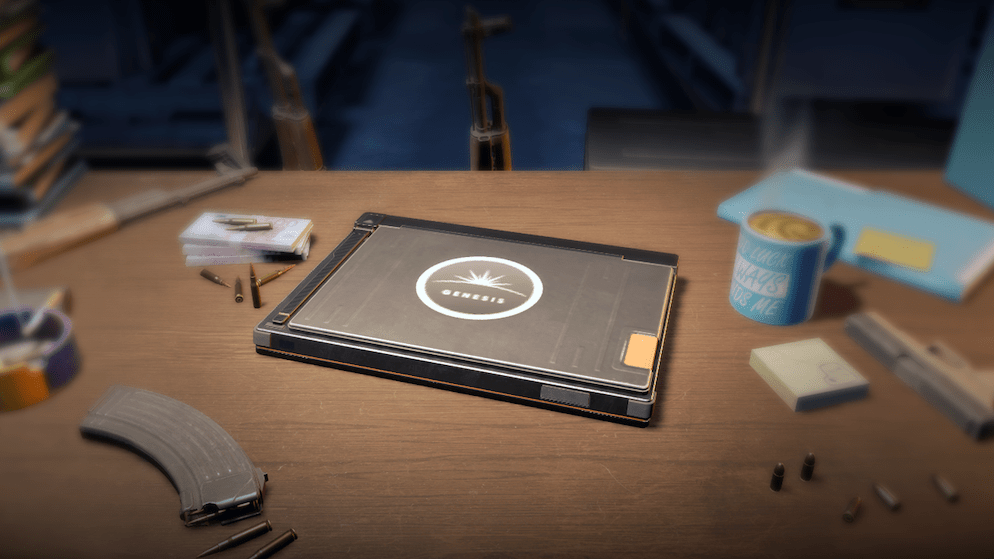
Skin Gambling by Country
Here’s a country‑by‑country legal & regulatory snapshot for skin gambling / csgo clicker‑type activities in 2025. It’s not exhaustive (laws are evolving) but gives key jurisdictions and their current stance.
| Jurisdiction | Legal Status of Skin/Item Gambling & Case‑Opening Activities | Key Notes / Sources |
| United Kingdom | Legal if the operator holds a licence under the UK Gambling Commission (UKGC) and meets age verification / responsible gambling standards. Skin‑gambling without licence is illegal. | Example: sites must treat items as value and meet gambling regulations. |
| Sweden | Skin‑betting and gambling with items is under close scrutiny. The Swedish Gambling Authority (SGA) reports high traffic to unlicensed sites, many allowing skin deposits, and worrying age verification. | While not always banned, there is rigorous supervisionand risk for unlicensed operations. |
| Poland | Current interpretation: loot boxes and skins gambling not classified as “gambling games” under the closed‑list Gambling Act, hence not regulated as gambling. | Skin gambling may operate in a legal gap; but unlicensed sites may still be blocked. |
| Turkey | Skin‑betting and “games of chance” that allow item‑to‑money conversion are considered gambling under law. Sites promoting case‑opening or skins with conversion may face sanctions. GOV.UK Also recent arrests of influencerspromoting skin‑gambling platforms in Turkey. | Strict regulatory regime; high potential for enforcement. |
| United States | Varies by state. At federal level skin betting falls in a grey zone. Some states (e.g., Washington) have deemed skin gambling illegal; others haven’t specified. | For example, many skin‑based gambling sites simply exclude US users. |
| China | Skin gambling (items convertible to value) is treated as illegal gambling under Chinese law. | Enforcement may vary. |
| Australia | Some sites offering skin‑based casino‑style games have been subject to regulatory action for allowing item deposits convertible to cash. | While not always explicitly banned, authorities are actively acting. |
| Netherlands/ Belgium | Online loot boxes, case‑opening and unlicensed casino‑style skin gamblinghave been treated as gambling and regulated or banned. For example, Belgiumclassified loot boxes as gambling. | Users in these countries may find in‑game case opening or skin‑casinos blocked. |
Important caveats:
- Legal status often depends on whether the site allows withdrawal or conversion of skins/items into cash or items with real‑world value. Where items can be cashed out, regulators are more likely to treat it as gambling.
- Even in jurisdictions where skin gambling isn’t explicitly regulated, unlicensed operations may be blocked or subject to enforcement for failing to meet consumer/age protection standards.
- Laws and interpretations are fast‑moving, and new legislation (e.g., India’s new “Promotion and Regulation of Online Gaming Act, 2025”) may change status in 2025 and beyond.
Final Thoughts
The world of csgo clicker and CS:GO skin gambling is fascinating, fraught with risk, and ridden with complexity. On one hand you have a vibrant economy of skins such as the karambit csgo or butterfly knife, trading across global markets; on the other hand you have rapid-click games, case openings and the potential for huge losses.
If you’re exploring this world (either as a casual participant or a researcher), remember:
- Value is real: skins have real-world worth.
- Speed is a factor: clicker games amplify the “easy win” image — and thus the risk.
- Regulation and legality matter: what seems fun now may carry consequences later.
- Transparency is uneven: Not all sites are licensed or fair.
- Comparisons matter: As with other forms of gambling, your risk profile depends on medium, frequency, intent.
- Prepare for change: The future of csgo clicker could look very different in five years.
In the end, whether you’re opening “cs:go weapon case 3”, chasing “most expensive csgo skin”, or simply curious about tile-click games in the skin world, treat it as high-risk, high-volatility activity. Seek knowledge, play responsibly, and understand that the clicker joy may cost more than you expect.
Frequently Asked Questions (FAQs)
What is csgo clicker exactly?
CSGO clicker refers to a type of game or website interface where users click, open cases or tiles, deposit skins or items and gamble for another item. It’s a variant of skin-gambling that emphasises rapid interaction and item rewards.
Are csgo clicker sites legal?
It depends on the site’s jurisdiction, licensing, and whether you’re using skins as betting currency. Many are in a grey zone, with some sites unregulated and dealing with minors. Always check legality by your region.
Can I really win a “most valuable cs go knife”?
Yes, in theory the reward pool may offer very high-value skins. However the odds are often very low, the value can fluctuate, and you may end up with withdrawals complicated by skin value or trade restrictions.
How is csgo clicker different from traditional online casino games?
Unlike cash-only casino games, csgo clicker uses skins/items as the stake. Value is tied to item markets, the speedand interaction differ (clicking cases, tiles), regulation is weaker, and withdrawal might involve item trades rather than cash.
What should I watch out for on a csgo clicker site?
Check licensing and regulation, user reviews, transparency on odds, the value conversion between your items and the site, withdrawal methods, and whether age verification exists. Treat any skin deposit as real money risk.

